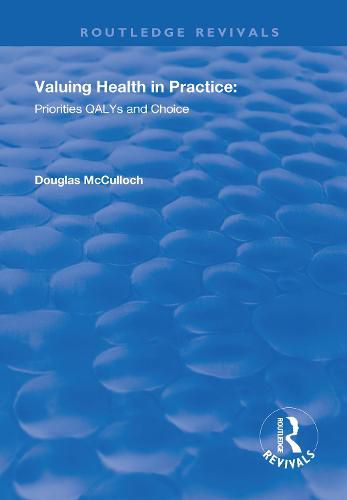Readings Newsletter
Become a Readings Member to make your shopping experience even easier.
Sign in or sign up for free!
You’re not far away from qualifying for FREE standard shipping within Australia
You’ve qualified for FREE standard shipping within Australia
The cart is loading…






This title was first published in 2002. Most of those working in health services are aware of scarcity and the need for choice, and many also know that health sector choices in the future may be made on a cost per quality-adjusted-life-year (QALY) basis. This volume explains health service choice, focusing in particular on the QALY success story, and the merits and drawbacks of this measure are explained. On the basis of some of the problems identified, a new QALY-based approach to resource allocation is developed, and other methods of priority setting are explained, ranging from heart surgery to Alzheimer’s Disease. The author explains the problems of health sector choice from first principles, in an approach that should be particularly useful to healthcare professionals, pharmaceutical industry managers, and students of economics.
$9.00 standard shipping within Australia
FREE standard shipping within Australia for orders over $100.00
Express & International shipping calculated at checkout
This title was first published in 2002. Most of those working in health services are aware of scarcity and the need for choice, and many also know that health sector choices in the future may be made on a cost per quality-adjusted-life-year (QALY) basis. This volume explains health service choice, focusing in particular on the QALY success story, and the merits and drawbacks of this measure are explained. On the basis of some of the problems identified, a new QALY-based approach to resource allocation is developed, and other methods of priority setting are explained, ranging from heart surgery to Alzheimer’s Disease. The author explains the problems of health sector choice from first principles, in an approach that should be particularly useful to healthcare professionals, pharmaceutical industry managers, and students of economics.